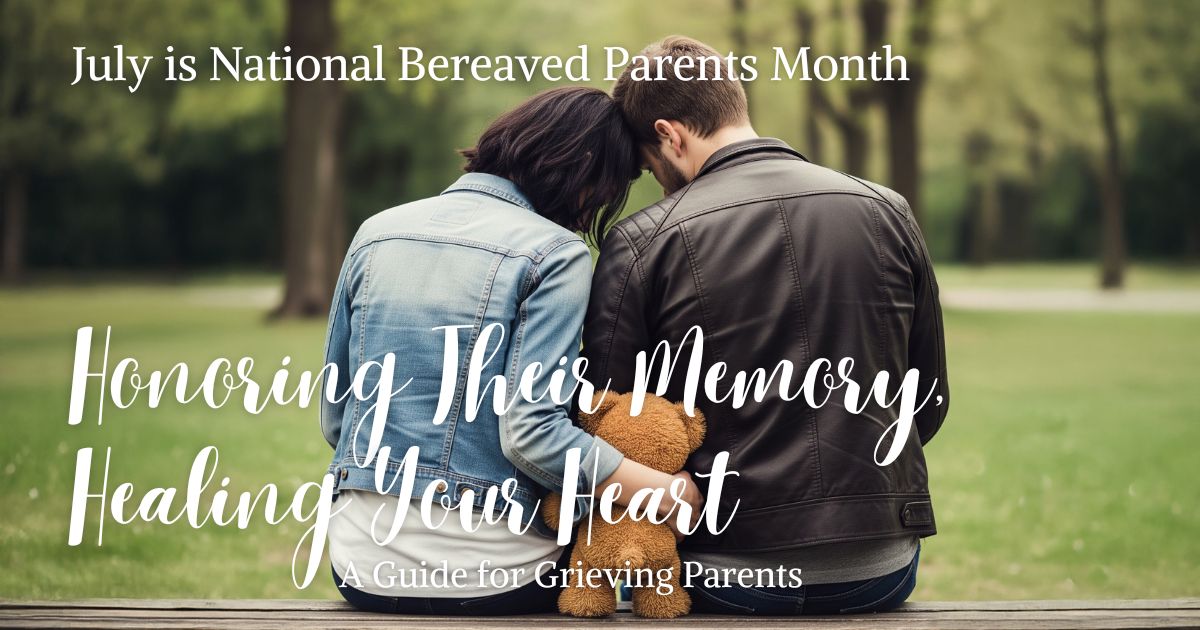
Listen to the "Honoring Their Memory, Healing Your Heart: A Guide for Grieving Parents - July is National Bereaved Parents Month" Podcast
Losing a child is an unimaginable heartbreak, a pain that cuts to the core of your being. It's a loss that defies the natural order of life, leaving you feeling lost, overwhelmed, and unsure of how to navigate a world without your precious child.
In the aftermath of such a profound loss, grief becomes your constant companion. It's a journey that's unique for each parent, shaped by your relationship with your child, your own life experiences, and the circumstances of their passing.
The Initial Shock
In the early days and weeks, you might feel numb, disoriented, or even in denial. It's like your mind is trying to protect you from the full impact of the loss. You might find yourself replaying memories, questioning what happened, or feeling detached from reality. These are normal reactions, a way for your mind and heart to gradually come to terms with the devastating truth.
The Emotional Rollercoaster
As the initial shock subsides, a wave of other emotions might surface. Anger, guilt, regret – these are all common companions on the grief journey. You might feel angry at the doctors, the universe, or even yourself. You might feel guilty about things you said or didn't say, things you did or didn't do. Remember, these feelings are a natural part of the grieving process, and it's okay to allow yourself to feel them without judgment.
The Physical Impact of Grief
Grief isn't just an emotional experience; it can also affect you physically. You might experience changes in appetite, sleep disturbances, fatigue, or even physical aches and pains. It's important to be kind to yourself during this time and prioritize self-care. Nourish your body with healthy foods, get enough rest, and engage in gentle exercise if you can.
Secondary Losses
In addition to the primary loss of your child, you might also experience secondary losses. These are the losses that ripple outward from the initial loss, such as the loss of hopes and dreams for your child's future, the loss of their role in your family, or the loss of your identity as a parent. These secondary losses can bring fresh waves of grief and require additional time and support to navigate.
Finding Your Way Forward
Navigating the loss of a child is a lifelong journey. There will be moments of intense pain, but there will also be moments of peace, healing, and even joy. Here are a few things to remember as you navigate this path:
-
Allow yourself to grieve. Don't try to suppress your emotions or rush the healing process.
-
Talk about your feelings. Share your grief with loved ones, a therapist, or a support group.
-
Take care of yourself. Prioritize your physical and emotional well-being.
-
Seek professional help if needed. There's no shame in asking for support.
-
Honor your child's memory. Find ways to keep their memory alive through stories, photos, or traditions.
Grief is a journey, not a destination. Be patient with yourself, allow yourself to feel, and embrace the support of those around you. In time, you'll find a way to honor your child's legacy and navigate a new chapter in your life, carrying their love with you always.




